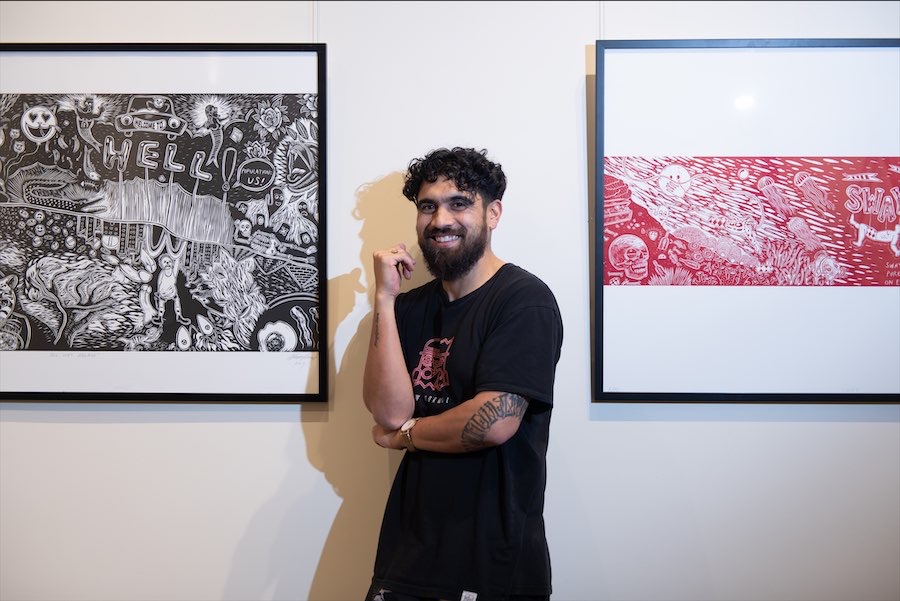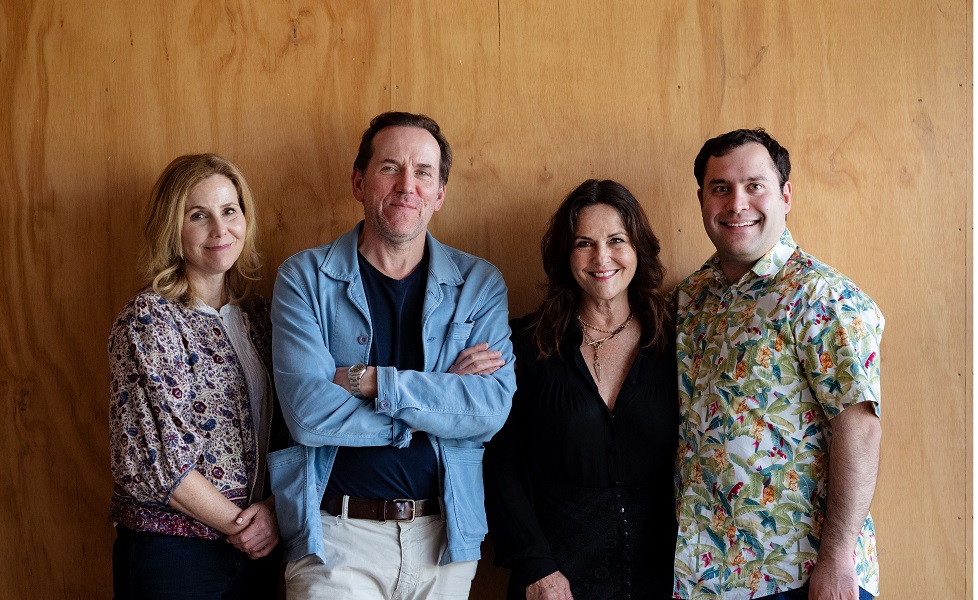
OMAR Musa has taken to growing plants throughout the pandemic.
The Queanbeyan-based author, poet and rapper developed an interest in horticulture in 2020 and found a new appreciation for the natural world locally.
“Because we can’t travel far afield, suddenly our little half-hour walk down to the river or the lake becomes full of the most beautiful, luminous things we haven’t seen before,” he says.
“Even if we want to contain it to our own apartments or houses, through the popularity of gardening and indoor plants. I’ve got a print that says ‘I miss the jungle so I propagated a memory and made one on my windowsill’.
“We can feel echoes of these huge forests and jungles, and recreate them on a small scale.
“I’m growing rare chillies from around the world. I’ve been making my own little garden… I’ve found great solace in that.
“We can take cues from nature about resilience, recovery and regrowth.”
Omar, 37, has always been drawn to the natural world, he says, and his latest exhibition of woodcuts and poetry, “Beautiful Thing, Vanishing Thing” at Humble House Gallery, celebrates the beauty of the “precious vanishing world”.
“We need to hold on to and cherish nature, but often we lose touch with it,” he says.
“I’m looking at these landscapes of Borneo and Australia, which couldn’t be more different but they’re affected by the same issues, the loss of endemic species through climate change and habitat destruction.
“I’m also bringing in other elements that are more personal, to do with my family history and Bornean culture. It’s playful, too.
“These woodcuts have a lot of humour and silliness in them.”
The medium of woodcutting connects Omar to his Bornean heritage, and he learned the traditional techniques, including printing with his feet, at a workshop at the Tamparuli Living Arts Centre in Sabah while on “a life-changing trip into the heart of the jungle”.
“At that point I was really burnt out. I’d sort of come to hate the things which were supposed to be my life’s passions,” he says.
“I’d been working so hard and for so long that I knew I needed a new way of expressing myself. And I didn’t know what that was going to be.”
Having been a fan of the highly political poster style of the woodcut collective Pangrok Sulap, Omar went to a woodcutting workshop run by artist and woodcutter Aerick LostControl to “have a go”.
“Pangrok Sulap were taught by a famous Indonesian woodcut collective called Taring Padi, who are in some ways the godfathers of the modern woodcut scene in South-East Asia. They taught Aerick, who taught me, so there’s an interesting lineage,” he says.
“I sat down on the ground, I was told: ‘This is the V-shaped tool, this is the U-shaped tool. They have different effects. All you need to remember is don’t carve towards your fingers, that’s it. Draw whatever you want’.”
Omar says he knew he wanted to carve something beautiful, and chose “the most beautiful thing I knew, a Bornean clouded leopard”.
“The image of the leopard has come up again and again for me. There’s a tragic element to them because their habitats are being destroyed,” he says.
“But, of course, because you can’t help who you are, I carved words alongside the picture, ‘when the loggers are away the leopards will play’.”
Omar says he started in woodcutting by combining words and images because at that time, making something purely visual “felt like too much of a leap for me”.
“I had to link it to what I was already doing,” he says.
Reflecting on how the covid era has affected both people and the natural world, Omar says the exhibition comes from “my heart and spirit”, with a love of the beauty of Australia and Malaysia.
“Although I only went to Borneo maybe once or twice as a child, my parents encouraged me to know the language and I grew up rich with stories of the homeland,” he says.
“Before covid, I would visit once or maybe twice a year. I’ve got a lot of family there, including my dad, a practising poet, and a really close-knit community of artists that I’m friends with and like to work with.
“I had planned to maybe move back last year, but that’s off the cards.
“For now I just have to dream about it through my art.”
“Precious Thing, Vanishing Thing”, Humble House Gallery, 93 Wollongong Street, Fyshwick, until August 22.
Who can be trusted?
In a world of spin and confusion, there’s never been a more important time to support independent journalism in Canberra.
If you trust our work online and want to enforce the power of independent voices, I invite you to make a small contribution.
Every dollar of support is invested back into our journalism to help keep citynews.com.au strong and free.
Thank you,
Ian Meikle, editor



Leave a Reply